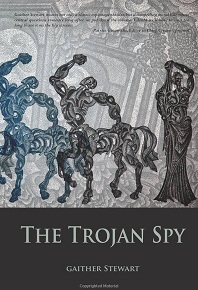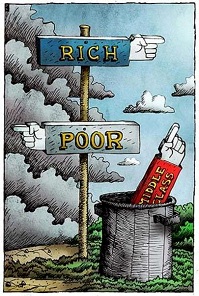Subversive Thrills
William T. Hathaway & Paul Carline
A Review of Gaither Stewart's latest novel, The Trojan Spy
Gaither Stewart's The Trojan Spy takes the thriller genre an important step forward, advancing it from the work of his predecessors John le Carré and Robert Ludlum. Le Carré and Ludlum rebelled against the conventions of the classic spy thrillers, which assumed that we're the good guys who are under attack by bad guys so evil that we're justified in bending the rules to save ourselves from them. In that world, lies, deceit, sabotage, and even murder are sometimes necessary to defend peace, justice, and the American (or Western) Way against (pick one, depending on when the book was written) Nazis, communists, or terrorists.
Le Carré and Ludlum made the genre less predictable in terms of identifying the bad guys. Instead of these being agents of the particular ennemi du jour, as in the simplistic 007 stories, they gave us plots revolving around corrupt politicians, rogue secret service agents, and insider conspiracies -- as in the film Syriana, or le Carré's The Constant Gardener. The perennial theme of many of le Carré's stories is the callous amorality of secret services -- especially the American and British ones -- who routinely betray others, even their own agents, for very questionable ulterior motives. The good guys -- whether civilian or secret service -- are often sacrificed for political or operational ends.
In Ludlum's "Bourne" series of books and films the suggestion is that the hero, Jason Bourne, has been subjected to mind-altering techniques which largely erased his original persona, replacing it with that of a programmable assassin. There are clear links here to secret government-sponsored programs such as MKUltra -- which were more than likely used in a number of recent faked "terrorist" bombing incidents, notably those of the "shoe bomber" Richard Reid and the December 2010 "underwear bomber," Umar Farouk Abdulmutallab -- both of whom were described by witnesses as appearing confused and disoriented, with glazed eyes.




























